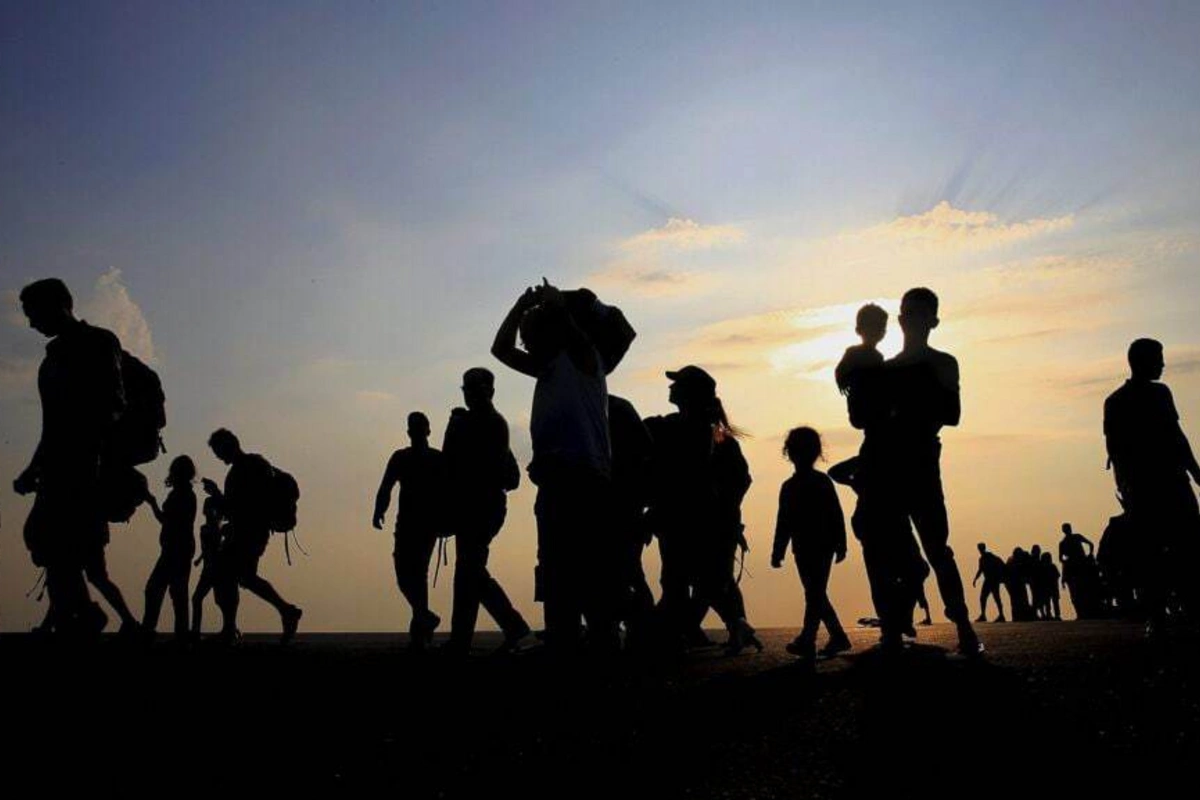
Photo credit: Reuters
As Russia's doors have increasingly closed, many workers from Central Asia have sought opportunities in South Korea. However, a growing number of these workers are also attempting to reach Western countries, often falling prey to unscrupulous exploiters along the way. Turkey has become an intermediate destination for many, where they stay for a few years with hopes of eventually making it to Europe or America.
Due to Russia's economic uncertainties stemming from the ongoing war in Ukraine and the growing pressures following last year's terrorist attack in Moscow, migrants from Central Asia are increasingly seeking well-paid work outside of the Russian labor market. Many are turning to alternative destinations in search of more stable and lucrative employment opportunities, The Caspian Post reports citing AsiaNews.
There are several million of them who are unable to find work at home, and who have traditionally for many years been used to moving for seasonal employment to Russia, where the economy is now increasingly stagnant, and they risk running the risk of increasingly harsh repression, or not even being able to obtain work visas and acceptable living conditions.
In the West, in European countries or America, salaries are certainly higher than in Russia, but there are different kinds of obstacles, not least the language barrier, as well as cultural and social inconveniences, and the difficulty of obtaining contracts according to the various national rules.
One of the most sought-after and for various reasons most accessible countries is South Korea, where the increasingly acute political crisis is, however, also holding back economic mechanisms, and making it complicated for those from outside to settle. As several migrants tell Radio Azattyk, ‘orders from clients are fewer and fewer, salaries are falling and police raids are increasing all the time’, creating conditions in Seoul similar to those in Moscow.
Many go to Korea from Kazakhstan, perhaps joining factories for illegal work, and are now faced with the dilemma of whether to stay or return to their homeland, where the local tenge is becoming increasingly devalued following the collapse of the Moscow rouble.
Russia has repatriated or prevented the entry of tens of thousands of Central Asian migrants over the past year, and in addition to the aftermath of the Krokus City Hall bombing in March, for which Tajik citizens were charged, an Uzbek migrant was detained in December, accused of the murder of General Igor Kirillov, one of the most important figures in Moscow's defence system. Many migrants leave Russia without even waiting for a repatriation order.
According to data from the National Bank of Uzbekistan, money transfers from South Korea in 2024 increased by 70 per cent to more than half a billion dollars, although money trafficking from Russia still dominates, reaching more than 12 billion.
There are currently over 100,000 Uzbeks working in South Korea, but the Tashkent Migration Service has issued a warning that Seoul's migration quota may be under ‘serious threat’ for over 10,000 Uzbek citizens who do not have a legal work contract. The Foreign Minister of Kyrgyzstan, Žeenbek Kulubaev, said that there were 650,000 labour migrants to Russia in 2023, and by the end of 2024 there were 350,000.
More Central Asians are travelling to Western countries in search of employment, but often under very adventurous and fraudulent schemes, with middlemen forcing migrants to pay huge sums to reach EU countries or the US, without actually getting the promised job.
Some rely on proposals found on social networks, offering, for example, a job as a driver in the Czech Republic, with a salary of ,500 through Czech Power Consulting, but to get it, one must first pay over a thousand dollars for a visa and insurance, money that ‘will be returned once hired’.
Once the money has been transferred, all contact is closed, and requests to the police or the embassy of one's own country in Prague are useless; there are those who have lost more than ,000 through these scams, trying to reach the United States.
One of the most realistic countries to look for work is Turkey, which offers jobs with rather moderate salaries, between 700 and 800 dollars a month, but from which it seems easier to move to America or other European countries where ‘you earn as much in a year as in 10 years in Istanbul’.
That is, if one does not fall into the machinations of traffickers again, perhaps staying broke in some South American or Mexican city, without being able to reach the coveted destination.
Share on social media